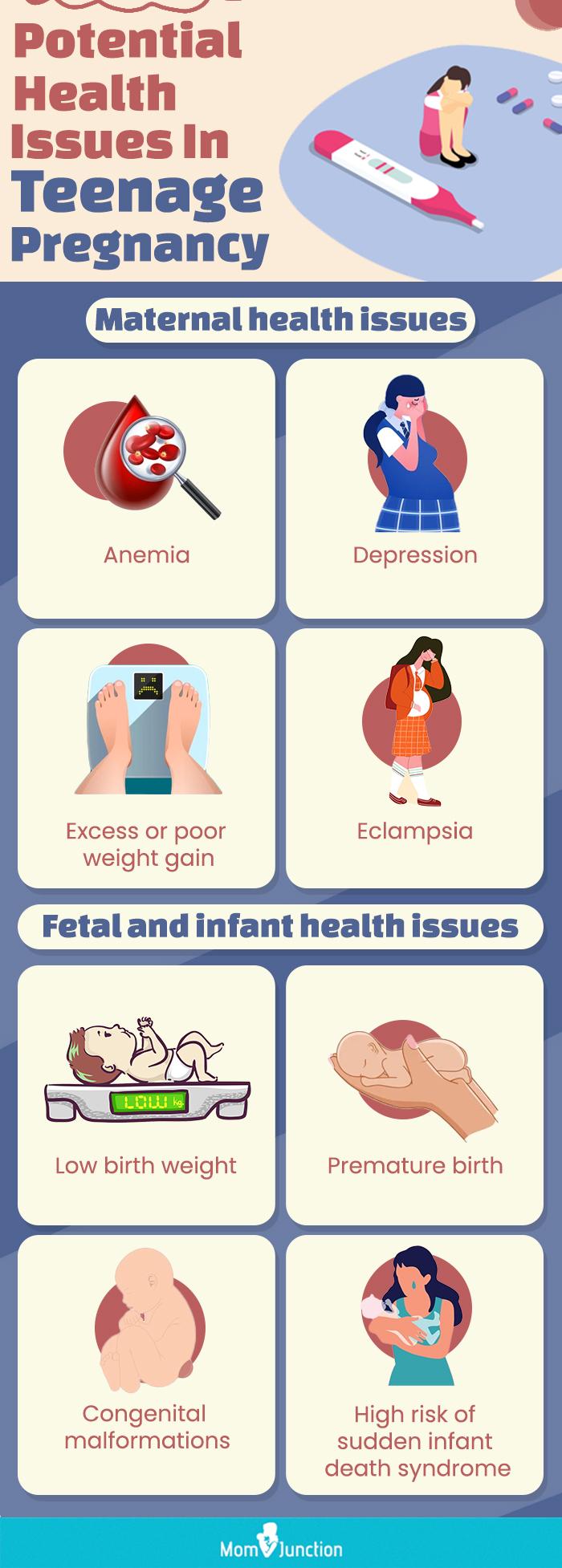
Effects of Teenage Pregnancy
Teenage pregnancy is a significant public health concern with far-reaching consequences for both the young mother and her child. It is defined as a pregnancy occurring to a girl under the age of 20, and it is a prevalent issue in many parts of the world. The effects of teenage pregnancy are multifaceted and can have lasting implications for the physical, emotional, and socioeconomic well-being of both the mother and the child.
Physical Effects
Teenage mothers are at an increased risk of experiencing a range of physical complications during pregnancy and childbirth. These include:
- Premature birth: Babies born to teenage mothers are more likely to be born prematurely, which can lead to a host of health problems, including respiratory distress syndrome, cerebral palsy, and developmental delays.
- Low birth weight: Babies born to teenage mothers are also more likely to have a low birth weight, which can increase the risk of infant mortality and long-term health issues.
- Anemia: Teenage mothers are more likely to be anemic, which can lead to fatigue, shortness of breath, and impaired cognitive function.
- Hypertension: Teenage mothers are at an increased risk of developing hypertension (high blood pressure) during pregnancy, which can lead to preeclampsia and other serious complications.
- Sexually transmitted infections (STIs): Teenage mothers are more likely to have STIs, which can be transmitted to their babies during childbirth.
Emotional Effects
Teenage pregnancy can also have a profound impact on the emotional well-being of both the mother and the child. These effects include:
- Depression and anxiety: Teenage mothers are more likely to experience depression and anxiety, which can interfere with their ability to care for themselves and their child.
- Low self-esteem: Teenage mothers often have low self-esteem, which can make it difficult for them to make healthy choices and build positive relationships.
- Relationship problems: Teenage mothers are more likely to experience relationship problems with their partners, which can lead to instability and conflict.
- Social isolation: Teenage mothers may experience social isolation, as they may be ostracized by their peers and family members.
Socioeconomic Effects
Teenage pregnancy can also have significant socioeconomic consequences for both the mother and the child. These effects include:
- Educational attainment: Teenage mothers are less likely to complete their education, which can limit their future employment opportunities and earning potential.
- Economic hardship: Teenage mothers are more likely to live in poverty, as they may have difficulty finding stable employment and supporting themselves and their child.
- Welfare dependency: Teenage mothers are more likely to rely on welfare programs, which can create a cycle of poverty and dependence.
- Child abuse and neglect: Children born to teenage mothers are more likely to experience child abuse and neglect, as their mothers may be less equipped to provide a stable and nurturing environment.
Prevention and Intervention
Preventing teenage pregnancy is crucial to reducing its negative effects on both the mother and the child. Effective prevention strategies include:
- Comprehensive sex education: Providing young people with accurate and age-appropriate information about sex, contraception, and pregnancy can help them make informed choices and avoid unintended pregnancies.
- Access to contraception: Ensuring that young people have access to a range of contraceptive methods, including condoms, birth control pills, and intrauterine devices (IUDs), can help prevent unintended pregnancies.
- Abstinence-only education: While abstinence-only education may be effective in delaying sexual activity, it has not been shown to be effective in preventing teenage pregnancy.
- Parent-child communication: Open and honest communication between parents and children about sex and relationships can help young people make responsible decisions and avoid unintended pregnancies.
For teenage mothers who have already become pregnant, intervention programs can provide support and resources to help them navigate the challenges of pregnancy, childbirth, and parenting. These programs may include:
- Prenatal care: Providing teenage mothers with access to prenatal care can help ensure the health of both the mother and the baby.
- Parenting education: Teaching teenage mothers about child development, parenting skills, and infant care can help them provide a safe and nurturing environment for their child.
- Social support: Providing teenage mothers with social support from family, friends, or community organizations can help them cope with the challenges of parenting and avoid negative outcomes.
Conclusion
Teenage pregnancy is a complex issue with far-reaching consequences for both the mother and the child. It can have significant physical, emotional, and socioeconomic effects that can last a lifetime. Preventing teenage pregnancy is crucial to reducing these negative outcomes, and effective prevention and intervention strategies are essential to supporting young people and ensuring their well-being.